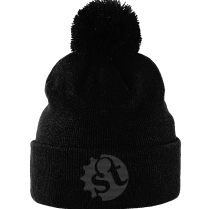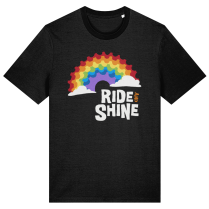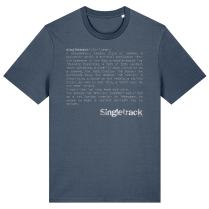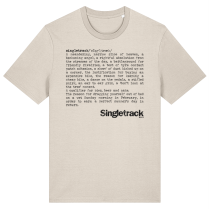Are you beating the clock or beating yourself up? Vicky struggles to get into a healthy race mindset.
Words by Vicky Balfour

Trudging along, pushing our bikes up a narrow, muddy sheep track, like extras in a low-budget zombie movie, Sonnie and I are moaning as friends do about how miserable we are. We’re two hours into the full enduro at Ard Rock, and it isn’t so much the stages that are giving me grief as the long uphill slogs to get to them which have resulted in me feeling drained and unable to push hard when I want to. Climbing out of yet another gully, I can feel my body losing energy and I seriously question whether I’m going to be able to keep this up for the full seven stages.
Pausing to look back over the landscape I realise I’m already beginning to engage my self-soothing mindset tactics. Reframing the mid-transition pause to catch my breath as a chance to admire the view, be present and express gratitude for my body and my life. However, I can feel the familiar frustration gnawing at me that I’m letting myself down, that my times won’t be fast enough.
Latest Singletrack Merch
Buying and wearing our sustainable merch is another great way to support Singletrack
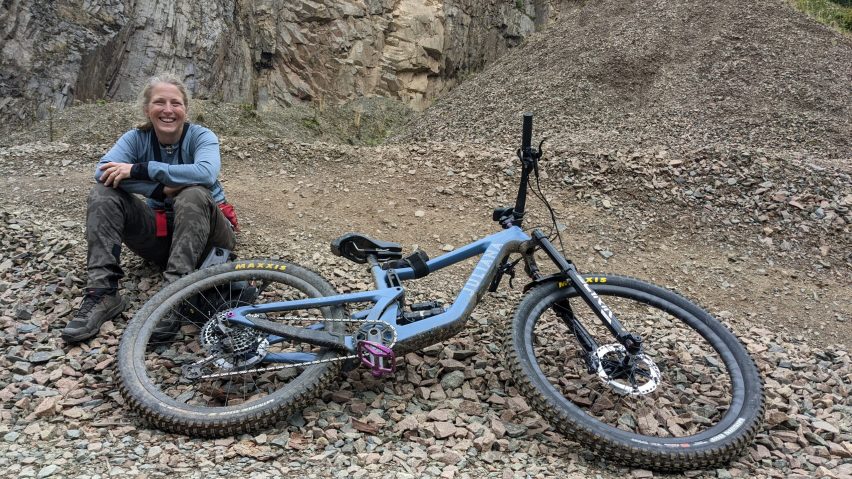
It’s just riding with mates!
As I utter the words “I don’t think I’m going to race again”, a bearded chap pedals up behind us and calls out chirpily: “You need to change your mindset! Just see it as riding with your mates!” For at least five minutes he mansplains mindset to me. My politeness and his seeming inability to listen make it impossible to get rid of him. Eventually, I come up with a reason (menstruation) that makes him move on sharpish and we’re left to wallow in peace again until we reach the pub halfway between stages two and three, down a fizzy drink and some real food (chicken and hummus wraps are the best!) which helps restore my sense of perspective.
They are simple words – ‘just riding with mates’. I’m guilty of using them to help others dispel their fear of racing, but, like any trite platitude, they don’t ask: “What is it exactly that’s causing your dis-ease; what’s making you uncomfortable?”
The initial answer to that hit me as I stood at the top of the steep ravine we’d climbed out of after the fun of stage four. I was riding with mates – I’m lucky enough to always be riding with mates at races. Besides, by the time you’ve ridden transitions together, strangers feel like mates as well. Riding with friends and the chance to ride in new places are the main reasons that I have loved racing over the last five years.
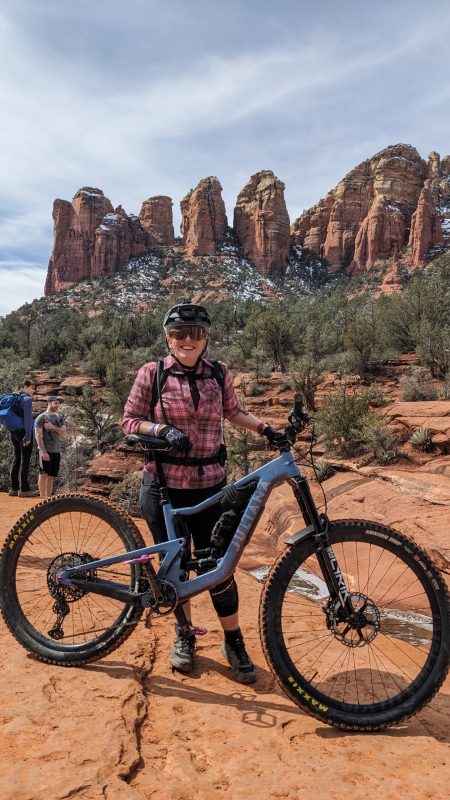
Performance anxiety
Riding is incredibly personal for me – it’s my sanctuary, my meditation and way to connect with myself and nature. Every time I find a way down a steep off-camber trail over rocks and roots or manoeuvre my bike around a tight switchback I feel a sense of elation and deep joy. The last 20 years as a parent have been amazing but also deeply painful and challenging at times and learning to ride mountain bikes, especially on steep, nadgery terrain, has given me a space where I can do something for me and restore myself. It’s helped me love myself and my body, and I am a better parent and person for doing it.
What I realised at the top of that bluff, is that racing reduces my day out to a series of numbers. What’s more, racing defines the entire day as a single metric – speed – and it’s a metric that I don’t use in isolation. Someone is fastest and someone is slowest and in women’s categories with few riders the differences can be very stark. All too often I don’t see myself ranked where I would like to be – hiding happily in the middle of the pack – and it leaves me feeling disappointed and hollow.
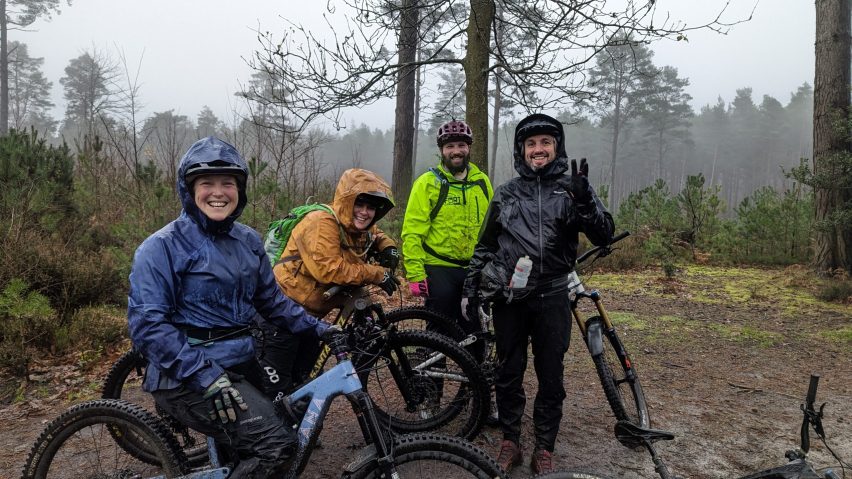
Self-torment or self-improvement?
“I don’t like racing because it makes me feel rubbish about myself as a rider.” There I’ve said it. “Seeing myself ranked five out of six in my category and considerably slower than many friends makes me feel like I can’t ride a bike at all. Over the last few months I’d been feeling strong and getting faster on the bike, now I feel like I’m useless.”
Thankfully this time the audience comprises close friends and kindred spirits. It’s a safe space and one where I’m happy to be challenged as it comes from a place of compassion and understanding. Sam reflects for a moment and says: “I’ve got two questions for you: ‘Does it make you want to get fitter and faster on the bike, and does it make you want to improve your riding?’ ” For him, these are the motivators that make competitive racing valuable. “Yes”, I say, “yes to both, but I don’t want the results of that effort to be judged in black and white without any context.”
The issue is that, like all perfectionists, I always strive to be the best I can and when I’m not it hurts. When I look at the rankings I feel that I’ve let myself down and I’m left feeling angry and disappointed. I forget the fact that I made it around without crashing, that I bossed those root sections or felt a burst of speed and joy as I picked my way through the rocks. And that I spent a whole day riding with friends in an incredible place.
Why did I come along?
When I bought my friend’s unwanted ticket to Ard Rock six weeks before the event, I knew that I wasn’t likely to be super fit, but I didn’t know that I had forgotten so much about racing. I had forgotten that it’s about making up time on the flat-out sections so that you can let yourself free on the nadgery singletrack. I had forgotten that I would ultimately face the barrage of ‘timing comparison’ at the end where everyone sits and reduces their day on the bike to Top Trumps and someone comes out bottom of the pile. I had forgotten how rubbish it can make me feel.
But it’s not all bad. It’s reminded me how much I love being fit and capable of big days out on the bike. It’s given me the motivation to train more physically as well as keep working on my cornering speed and riding skills. It’s reminded me how much I love the mountain bike community and how many friends I have there, not to mention how much I love North Yorkshire. But it’s also made me want to explore more the emotions that it brings up around disappointment, frustration, self-esteem and how I handle them.
Are they enough to make me go back? I don’t know, but if I do I hope that I’m either fast enough to no longer face this torment, or I have learned enough about myself to remove it. Or both!

